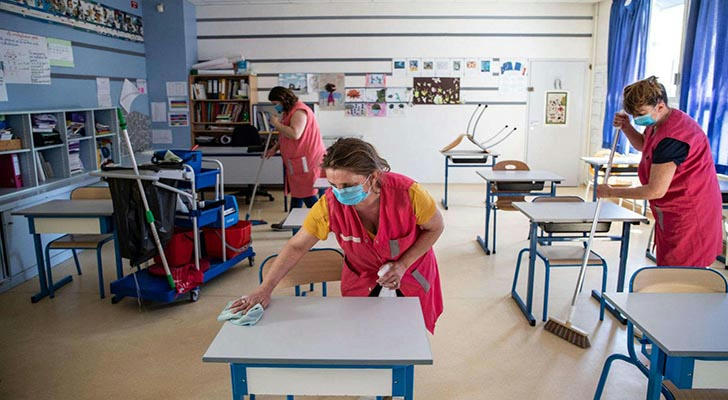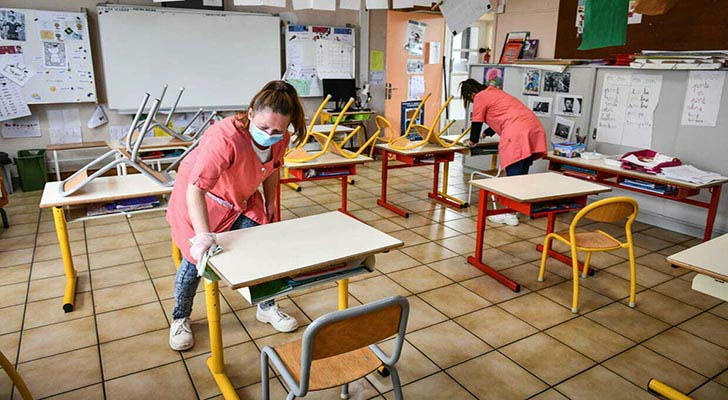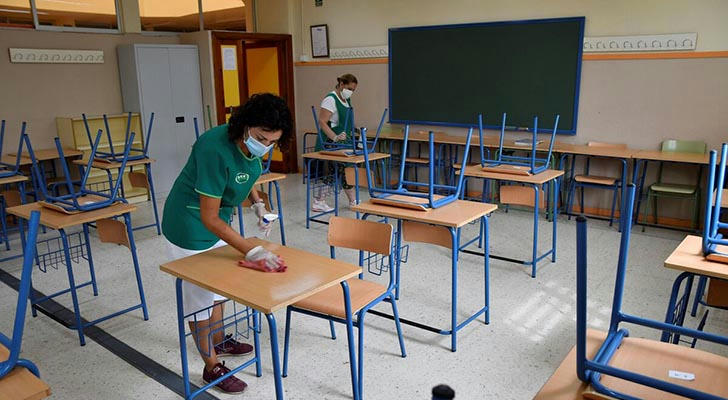School cleaning career guide: revealing the opportunities and challenges of campus cleaning work for job seekers
With the continuous improvement of school environmental sanitation standards, school cleaning work has become an important position to ensure student health and campus safety. For job seekers who are looking for a stable career, school cleaning not only provides employment opportunities, but also a position with social value and career development. This article will provide detailed guidance and real case references for job seekers who are interested in entering this industry from the aspects of the responsibilities, skill requirements, working environment, salary and benefits, and development prospects of the school cleaning profession.

1. Responsibilities and daily work of school cleaning profession
The school cleaning position is mainly responsible for the maintenance of environmental sanitation inside and outside the school, ensuring that classrooms, corridors, toilets, canteens and playgrounds are clean and safe. Specific responsibilities include:
Go to work on time, abide by the work and rest schedule, obey the work arrangements of the management department, and ensure work discipline.
Complete the cleaning of classrooms and public areas before class every day, and keep the ground free of garbage and debris.
Clean up trash cans and domestic garbage regularly to prevent garbage from overflowing or scattering, and keep the campus environment clean.
Disinfect high-frequency contact areas such as door handles and desktops to reduce the risk of germ transmission.
Assist in cleaning and preparing meals in the kitchen area to ensure food safety and hygiene.
Monitor the inventory of cleaning supplies and replenish them in time to ensure the continuity of cleaning work.
Regularly clean the periphery of the campus and the garbage dumping site to prevent environmental pollution.
2. Required skills and occupational standards
School cleaning work may seem simple, but it has clear requirements for skills and professional knowledge. According to the occupational skill standards, cleaners need to master the following abilities:
Be familiar with the operation and maintenance of various cleaning tools and mechanical equipment, such as sweepers, vacuum cleaners, etc.
Understand the characteristics of different pollutants and the corresponding cleaning and disinfection methods to ensure thorough and safe cleaning.
Master the knowledge of garbage classification and correctly collect and dispose of garbage.
Have knowledge of safe production, be able to use protective equipment correctly, and prevent occupational injuries.
Have good time management and organizational skills, and be able to complete multi-task work efficiently.
Have basic communication skills and teamwork spirit, and be able to cooperate smoothly with teachers, students and administrators.

3. Salary and Career Development
In the United States, the starting salary for school cleaners is usually around $18 per hour, and the specific salary varies depending on the region and school size. Some regions and private schools may offer higher salaries and benefits.
This profession has a low entry threshold and does not require a high degree or complex certificates, making it suitable for people who want to find employment quickly. With the accumulation of experience and improvement of skills, there is an opportunity to be promoted to a cleaning team leader or logistics management position.
Real cases show that professional cleaners not only win the respect of school teachers and students, but also gain a stable economic income and a sense of professional achievement. In Canada, cleaners can earn up to 30 Canadian dollars per hour and enjoy comprehensive social insurance and annual leave benefits, which reflects the social recognition and decency of this profession.
4. Work environment and career challenges
The working environment of school cleaning positions is diverse, including indoor classrooms, offices, outdoor playgrounds, corridors and other areas. It is often necessary to bend over, carry garbage and cleaning equipment during work, which requires certain physical strength.
In addition, cleaning work requires high details and must ensure thorough disinfection, especially during flu season or epidemics, when the work pressure is high. Cleaning staff need to face sudden health incidents, such as food spillage, sudden pollution, etc., and need to respond quickly.

5. How to prepare and apply for school cleaning positions
Prepare a resume and cover letter, highlighting relevant experience and skills, especially cleaning work, time management and teamwork skills.
Understand job responsibilities and working hours to ensure that you can adapt to the school's schedule.
Participate in relevant vocational training, master cleaning equipment operation and safety knowledge, and improve competitiveness.
Pay attention to recruitment information of local schools or educational institutions and submit application materials as required.
Show a meticulous and responsible attitude during the interview, and emphasize the importance of campus environment and student safety.

Conclusion
School cleaning work is an important position to ensure campus environmental hygiene and promote student health. For job seekers, this is a job with a low entry threshold, stable social demand and career development potential. Mastering professional skills, maintaining a sense of responsibility and a good work attitude are the keys to success in this industry. Choosing a school cleaning career means choosing a stable and meaningful career path.
